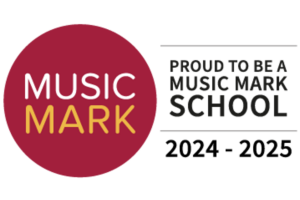- Overview
- Our Curriculum Intent
- Subjects
- Ready to Learn
- Assessment
- Reading
- Student Celebration
- Personal Development
- Student Wellbeing
- Trips, Clubs and Enrichment
- Cambridge Aim Higher 2025
- Thackray Museum of Medicine 25
- Glasshouse International Centre for Music 25
- Hamilton 2025
- Ski Trip 2025
- P16 London 2025
- Young Voices 2025
- Paris Drama Convention 2025
- Geography Fieldwork 2024
- France 2024
- Pilgrimage 2024
- Thackray Medical Museum 2024
- Vietnam 2024
- Ski Trip 2024
- Paris 2024
- Auschwitz 2023
- Cambridge 2023
- France
- Geography Field trips
- Nell Bank
- Oxford
- Pilgrimage
- Rewards
- Ski Trip
- Spain
- Thailand
- Student Leadership and Student Voice
- Creative Arts School Shows
- Homework and Remote Learning
- Year 9 Pathways
- Exams Information
- British Values
- Extra-Curricular
- Go Higher West Yorkshire
Assessment

Assessment
At Immanuel College we use formative and summative assessments to monitor the progress of our students in each year group.
What is formative assessment?
Formative assessment focuses on ongoing feedback and monitoring of student progress during the learning process.
Importance of formative assessment
Supports progress: Formative assessment provides students with timely feedback on their strengths and areas that need improvement. This feedback helps students understand their gaps in knowledge and skills to improve future learning strategies.
Informs instruction: Teachers can use formative assessment data to tailor their teaching to better suit the needs of individual students and their classes. This helps address misconceptions and adapt teaching strategies in real time.
Engages students: Regular feedback and the opportunity to monitor their own progress can increase student engagement and motivation. Students feel a sense of ownership over their learning and are more likely to stay engaged in the learning process.
Identifies the need for early intervention: Formative assessments help identify students who are falling behind early on, allowing for timely interventions to provide additional support before knowledge and skills gaps become too significant.
Encourages reflection: Students engage in metacognitive processes when they receive formative feedback, which promotes self-regulation and the ability to evaluate their own learning strategies.
Encourages process Learning: Formative assessment supports a patterned process of learning, where students receive feedback, make adjustments, and then receive further feedback, leading to repetitive improvements in their understanding of knowledge and skills.
What is summative assessment?
Summative assessment evaluates student learning outcomes at the end of a specific period, such as a unit, course, or school year.
Importance of summative assessment
Measures overall learning: Summative assessments evaluate the cumulative learning outcomes of students over a specific period. They provide a snapshot of the students' overall understanding of the material.
Provides feedback on the curriculum and quality of education: Summative assessments can provide valuable insights into the effectiveness of curriculum design and teaching and learning methods. If a significant number of students struggle with a particular topic, it signals a need for adaptation and curriculum adjustments.
Preparation for further education, employment, and training: In many education systems, summative assessments like final exams or standardised tests are used to gauge students' readiness for higher education or the workforce.
Accountability and benchmarking: Summative assessments play a role in holding schools, teachers, and students accountable for achieving educational standards. They also enable benchmarking against external standards and other educational institutions.
Certification and graduation: Summative assessments are often used as criteria for certifying the completion of a course. They play a role in determining whether students are ready to progress to the next level of education.
Incorporating both formative and summative assessments allows for a comprehensive understanding of student learning. Formative assessments support ongoing improvement and learning adjustments, while summative assessments provide a broader evaluation of achievement and inform broader educational decisions.









